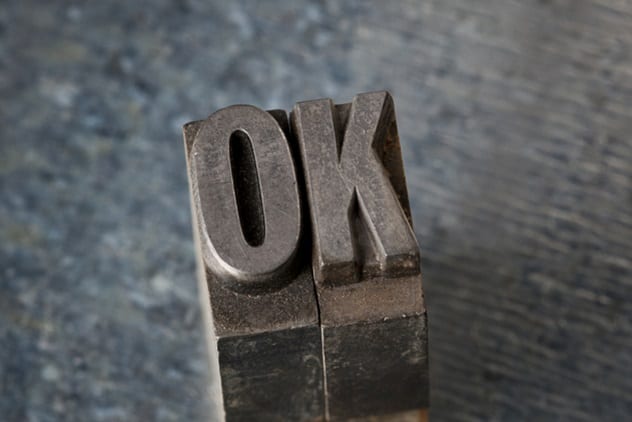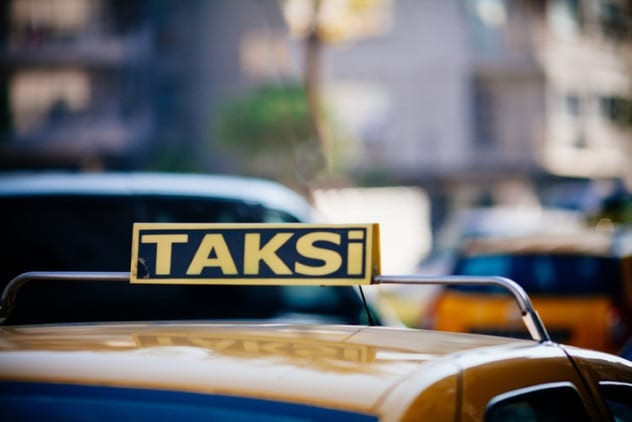Blog
Greetings from a beautiful, snow-dusted mountain in southern Austria. In the last weeks, I have been diligently working my way through Katherine Schober’s fantastic online course Reading the old German Handwriting. And in getting started with my new skills, a journey of one word ended up taking me around the world. Here is my story.
HELLO KURRENTSCHRIFT!
When someone discovers Kurrentschrift (the old German handwriting) for the first time they would be hard pressed to be anything but perplexed.
“You’re telling me, THAT letter is an ‘e’?”
A Little About Me:
To give you my background: I am an Aussie living in Austria, married to an Austrian who himself has a Slovene father and a Croatian mother!
It was my husband Bernie’s fascinating history that inspired us to delve into genealogy and family history research and over time that led to the creation of our website Project Ancestry.
As explained in the German handwriting course, Kurrentschrift was used throughout the entire German-speaking realm, and it was while researching Bernie’s Slovene ancestors that I first came across this baffling (yet somehow beautiful) form of handwriting.
So what’s the best way to improve any new skill? Practice!
THE JOURNEY OF ONE GERMAN WORD
My mum in Australia (who has avidly toiled over our own family tree over the last twenty years) was uber excited to find out that I am learning the Kurrentschrift. So much so, that she didn’t waste any time recommending my (cough-cough) amazing new-found translation skills…. to a distant relative in Canada!
The next thing I knew, I had an 1885 civil marriage record from Berlin in my inbox, along with the question:
“Are you able to decipher the words between – Tochter der …….. ……. worker?” (daughter of the… worker)

A MISSION FORMED
Bernie is a native German speaker (which helps immensely) and he could clearly see that ‘jetzt’ (meaning now) comes after the word ‘der’.
“The daughter of the now…..”
But what comes next? We did have one clue! The word most likely describes what comes directly after it, Arbeiter – worker.
And so, armed with the key of the Kurrentschrift letters, Bernie and I attempted several different possibilities:
“verstorbene” – deceased
“pensioniert” – retired
“geschieden” – divorced
“arbeitslos” – unemployed
None of those words fit.

The first letter of the word had us completely stumped as, to our eyes, it bears little resemblance to any of the Kurrentschrift letters.
We tried different methods:
a) Entering potential words into the online script generator deutsche-handschrift.de.
b) Comparing the letters to others written within the document.
c) Enlarging the letters by zooming in the computer screen (this only makes it harder).
We were none the wiser. A new tactic was required
We decided to send it to our clever German friend Ralf in Adelaide, Australia.
Nope, Ralf had no clue either.
So Ralf sent it on to his father Ernst, in Germany, who evidently ‘loves a good challenge’.
Nope, Ernst had no clue either.
Ernst then sent it on to his aunt (she is well into her 90’s) as she had learnt Kurrentschrift as a child!
SO WHAT WAS THE WORD?
We believe the word is “verehelichten” which is an older spelling of “veheiratet”, meaning married. (Genealogy Translator Katherine Schober: Yes, that is correct!)
So if you look back up at the extract from the document, the complete sentence would be:
“Tochter der jetzt verehelichten Arbeiter Starick Johanna Friederike”
“Daughter of the now married worker Starick Johanna Friederike …”
Mystery solved.
We forwarded the solution to my mum in Australia, who then sent it back over to Magarethe in Canada, who in the mean time had also sent it to a friend in Germany for investigation!

SUCCESS
It took seven (very determined) people from four countries BUT we finally had an answer!
The moral of the story?
Use your network. Oh, and never give up on a good challenge!
Can you imagine the registry office employee from 1885, not knowing that some 135 years later, just one word they had written would have so many people interacting?
I think it’s amazing.
About the Author

Narelle (Nelly) and her husband Bernie Kukowetz are the founders of Project Ancestry.
Project Ancestry is an online platform and growing community for family history and genealogy research. We focus on a unique part of Europe that intersects three beautiful countries which historically have always been intertwined: Austria, Slovenia and Italy (Friuli Venezia Giulia).
3 Responses
-
Narelle, your blog is excellent, I am very pleased to have been a part of it. Having just started genealogy in April (my COVID project) to having my name in print in a genealogy blog, quite the privilege. I was close in thinking it meant the now married worker, but for the life of me could not think of a German word that would mean that. I wonder if my mother would have been able to decipher it as her cursive writing was different but I could always read what she wrote. This one had me stumped for sure. It really is amazing how many people and how many countries it went to. Thank you for persisting. Greetings from Canada, Margarethe Wilkins
-
Hello Margarethe! It was an amazing joint effort wasn’t it! You will find that in family history and genealogy, there are always fellow researchers willing to help…all over the world! Katherine has some great resources and ‘insider’ tips here on the website so be sure to have a look around! Happy researching!
-
Hello Narelle,
Yes, I have found out very quickly that asking others has sometimes given me the little piece I was missing to put the puzzle together. That is how I finally could put together our Australian connection on the Stadus tree. It has opened up a whole new family branch that is much larger than I anticipated. I will be sure to check out Katherine’s resources. Thank you again, Stay safe
-
-
Leave a Reply
You can find books dedicated to words that are “untranslatable” from language to language, but what about the words that hardly need translation? The world’s various languages have evolved to be beautifully diverse, and their words often seem to bear little resemblance to each other. However, there are a handful of words which sound strangely similar around the globe.
Maybe there’s just something intrinsically human about the sound of these words. In other cases, certain foodstuffs just managed to retain their tags as they moved from culture to culture. Whatever the reason, here are just a few words in different languages that have managed to stay connected.
10 ‘Pajamas’
A Hindi and Urdu word, pajama, referred to loose pants tied around the waist, a popular fashion in India. After colonization, the British took the clothing home, and over time, the style and word grew far beyond the subcontinent.[1]
What is particularly notable is how far it has gotten (and in such a short time). In almost any language you could name, you can find a derivative of pajama. Whether it is bijama in Arabic or pizsama in Hungarian. The word “pajama” even appears in languages like Basque and Irish.
Add to that the fact that many of these languages must have previously had some term for sleepwear. It was by no means a new concept. Even though previous terms may have been simple compound words (such as “nightgown” in English), they were still doing a pretty sufficient job.
For so many languages to incorporate this new term and use it widely is incredibly unusual. Imagine if kilts suddenly became highly fashionable, and within less than a century, every language was using “kilt” as a word for skirts. You would accept it because that would be awesome, and you would be dead, but it would be strange nonetheless. Similarly, “pajamas” is a great word, and fun to say, but the takeover is pretty hard to explain.
9 ‘OK’
Often cited as one of the most well-known words in the world, “OK” is doing pretty okay for itself. A common story behind the creation of “OK” was that 1830s newspapers in the US went mad for abbreviations. “OK” came about as a joke. The abbreviation “OK” was used to mean “orl korrekt,” an intentional misspelling of “all correct”[2] which was presumably hysterical in the 1830s.
Okay, well, there are other theories. Some claim it is a corruption of aux Cayes, French for “from Cayes,” referring to a Haitian port with good rum. Or maybe it’s from the Greek ola kala, meaning “it is good” or “all good,” or even derived from the Scots phrase “och aye.” Whatever its origin, the word has quickly spread to be used and understood in almost every country to mean that everything is alright.
There are several theories behind “OK’s” easy travel. One is aesthetics; the curved “O” and straight-lined “K” side by side is distinctive. Another is that the sounds “oh,” “k,” and “ay” exist in most languages. First mentioned in the Slang Dictionary of Vulgar Words, “OK” hasn’t really been accepted into formal speech (though it is recognized by several dictionaries). However, it has found worldwide fame and has become an indispensable go-to word for average situations.
8 ‘Taxi’
“Taxi” is another relatively recent word that has been incorporated into many languages. From the term “taximeter cab” (“tax” from the Medieval Latin taxa for “tax” or “charge”), the shortened word “taxi” has become commonplace all over the world. Though it changes language to language, the sound is almost always “tak-see” or very close.[3]
It may simply be that it is a short and easy word that describes a more complicated idea. In Japan, taxis were bureaucratically referred to as ippan jokyaku ryokaku jidosha (“motor vehicle for general passengers and travelers”). Saving much ink, the word takushii became commonplace from the start.
It may have been a word simply popularized elsewhere by tourism. However, with the US, Europe, and Japan all essentially using the word “taxi,” most countries were importing their vehicles from a country that used the word. British cars were sent to India, and brands like Toyota and Ford became commonly used as taxis around the world, making traveling one word easier for tourists everywhere.
7 ‘Mama’
The word “mama” is the same in a startlingly high number of languages, or at least very similar, such as eomma in Korean or mami in Czech. (Equivalent words for fathers are also similar but vary more widely.) This consistent term for “mother” may lure you into thinking that this word was so strong, so integral, that it survived from early humanity and spread throughout the world.
The real story is even stranger. It independently arose in many different languages. How could this happen? Research suggests it has everything to do with early speech development. A baby’s babbling is not a series of random noises and follows a pattern. In vocal experimentation, babies often arrive at the “ah” sound first. It is the easiest sound to make, as you do not have to do anything with your mouth to make it. Closing our lips to create an “mmm” also comes quite naturally. Think of how often you still do. Mm-hmm?
These sounds combined create a common first word: “mama.” The primary caregiver feels that she is being addressed. The situation plays out all over the world.[4] The same sounds, the same interpretation, the same word. And so, whenever you want to call out for your mama, wherever you are in the world, people will know what’s up.
6 ‘Haha’
“Haha” is our go-to sound for describing laughter. It has been that way since we first started writing it down—all the way back to Chaucer. Other onomatopoeic variations, such as “hehe,” “hee-hee,” or “ho-ho,” just cannot compete. And, looking at the way that other cultures write out laughter at a keyboard, it appears that this is mirrored across much of the world.[5]
Each language, of course, has different ways of expressing and typing this “haha” sound. For instance, Spanish will be “jaja.” In Thailand, the number 5 is pronounced “ha,” so they will often express laughter on the keyboard by typing “55555!”
This common “haha” makes for an easy concept to translate in case you want to be dryly sarcastic in other languages. If you would like to express genuine mirth, then you can, of course, just laugh.
5 ‘Guitar’
The word “guitar” is complicated to trace, as it has applied to different stringed instruments throughout history. It wasn’t until the 19th century that a six-stringed instrument closely resembling the versatile and commonplace guitar we know today was developed.
This modern guitar was derived from Spain and a medieval instrument known as a guitarra latina. Much of Europe takes the word from this. However, going back further, the Spanish word has roots in Greek word kithara and Arabic gitara.
However, both the word and instrument go much further back than this. Tar is a Hindi word for “string,” derived from more ancient Persian and Sanskrit. Tar is seen in many other instrument names, such as the tar and sitar.
This long evolution crisscrossing continents created a common word for the instrument across many cultures, and eventually, it integrated into a vast array of languages. Incredibly, at the end of the process, we (almost) all still describe a Fender with the same “gee-ta” sound.[6]
4 Cha
China exported tea, both the product and the word, around the world. Actually, they exported two different words. “Tea” was pronounced cha in most dialects across China, and this pronunciation was spread via the Silk Road into Persian and then Urdu, Arabic, Russian, and eventually as far as East African languages such as Swahili.
However, a particular dialect pronouncing cha as “te” just so happened to be spoken at two major ports for Dutch trade: the coastal province of Fujian and the island of Taiwan. From Dutch, the word spread into Europe as well as the west coast of Africa and influenced a large number of languages from that point.[7]
There are languages that use neither word. Unsurprisingly, they tend to be countries where tea grows naturally. However, you’ll find the Chinese terms in almost 200 different languages. Cha derivatives are more common, however, and often a name for a type of tea in languages that don’t use one. Chai tea, for instance, is an Indian tea now popular across much of the world. Armed with both words, you can ask for a cup of tea almost anywhere in the world.
3 Kahve
“Kof-ee,” “kahve,” “kava” . . . Make these three sounds, and you’ve come pretty close to saying “coffee” in most of the languages in the world. That is because most languages borrowed the Turkish word kahve (not to be confused with “Java,” which is a slang term from referring to Javanese coffee), which, in turn, was based on the older Arabic word qahua.
And none have drifted too far from that point. In fact, English uses one of the least recognizable forms. Much of Europe changed “v” to “f” (such as the French cafe), but the Dutch also changed the “a” to an “o,” leaving languages such as English, German, and Afrikaans with the sound “kofi.”[8] All, however, are still very recognizably tied to the Turkish word. The popularity of the drink spread quickly, and the word came with it.
Caffeine has remained immensely popular. Should you prefer your caffeinated drinks cold, the global dominance of Coca-Cola means you can probably request this in most places and be understood, too. Or you can just yell out the word “caffeine.” It, too, has hardly changed across languages. Although perhaps it’s better to stick with asking for a drink; people simply yelling out “caffeine” in public spaces may not get the fine cup of coffee they desire.
2 ‘Huh’
A 2013 study lauded “huh” as the most universal word in the world. Despite this, the word is not the same across languages.
. . . Huh?
The thing is that while it doesn’t sound exactly the same, there are an incredibly narrow set of parameters that it adheres to. The equivalent words are always monosyllabic, have a questioning intonation, and all have similar vowel and consonant sounds and formation. This may not sound incredible, but a word with these rules is an exceptional discovery. Imagine finding that “dog” or “chair” had an innate form replicated independently across the majority of languages.
And though many might not think of “huh” as a word, it is, with a place in the dictionaries and everything. Specifically, it is a sound that needs to be learned and not one we naturally produce. (Bizarrely, so is most of the noise we make when we sneeze. So, if you have an explosive sneeze, you are the only one to blame.) This is an important point, as otherwise, “huh” would simply be another naturally occurring sound, such as a grunt or cry.
The study suggested that these similarities exist since “huh” has such a unique function. It has to be easily slid into a conversation without disrupting the initial speaker too greatly. As each language evolved, they all independently found that this type of sound best suited the job.[9] With this level of similarity, it is a word that can transcend language barriers. It’s helpful, too, as talking to someone who doesn’t speak your language is going to lead to a whole lot of “huh?”
1 Chocolate
Chocolate is another addiction that became unbelievably popular around the world while the name remained largely unchanged.[10] The word originates in the Nahuatl word xocolatl. In Aztec culture, these cacao beans were widely consumed as a beverage called cacahuatl, a probable origin for the word “cacao.” The Spaniards coined the term “chocolate,” and the word passed from Spanish into many other European languages, including English.
As with coffee, it is perhaps the speed at which new cultures picked up chocolate that kept the name from changing, with dedicated “chocolate houses” springing up in Europe in the 17th and early 18th centuries around a product that had become immediately culturally significant. Today, “chocoholic” is an actual word in actual dictionaries, so not a whole lot has changed.
Reggie is a small being moving around the planet, learning new things, and writing some of them down.
What Is Your One Word? – This Principle Will Change Your Life!
Evan Carmichael explains how we all have one word that defines our life. When we find that one word, and live by it, the quality of our entire life changes.
What Is Your One Word? – This Principle Will Change Your Life! – Watch FREE On Youtube:
From the book “YOUR ONE WORD” Get it now on Amazon.
Speaker: Evan Carmichael
Transcript – What Is Your One Word? – This Principle Will Change Your Life! – (Motivational Speech)
I’m going to share a secret with you. A secret so powerful that once you discover it, every decision you make in your life and business will become easier. Doors will start to open where before you struggled to make any progress. You’ll finally feel like you’re living your life with a purpose instead of fighting the world around you.
Great leaders have used this secret to build powerful companies, spark important movements and create meaningful change, and now you can too.
Here’s the secret.
There is one word that defines who you are. There is one word that connects all the things in your life that make you come alive.
Think about the friends you have, the music you listen to, the books you read, the movies you watched, the companies you’ve worked for, the businesses you’ve started… Think about everything in your life now that you enjoy. They are all connected. Until you figure out what that connection is, you’ll never live up to your potential.
What’s your favorite song and what does it have to do with who your best friend or favorite book is? The answer is everything. And it can be boiled down to one simple, powerful word.
Great people can be described in one word. Martin Luther King Jr – equality. Oprah Winfrey – heart. Steve Jobs – impact. You________?.
If you want to break free from the chains of mediocrity and really make an impact, then it starts with finding your one word. You have to stand for something powerful and important.
On August 23rd, 1963 a quarter of a million people went to Washington DC to hear Martin Luther King Jr. speak at the Lincoln Memorial. How did he get so many people to come out? He didn’t have a newsletter or a Twitter account. He wasn’t making Youtube videos or using Google ad words. He didn’t have a website, didn’t use Facebook.
He didn’t have any of the tools that make it so easy for us today to reach people and start movements and yet 250,000 people came out. Why? Because he stood for something important. The cause he believed in touched people’s hearts and led them to action. It was so important that people willingly spread the word and promoted his cause because it was their cause too.
The process you’re about to go through is important. It’s one of the most valuable exercises you’ll ever do in your life. The results are life changing. We’re going to go over the five core questions:
Number 1: What makes you happy?
Number 2: What connects your happiness?
Number 3: What trait do you hate?
Number 4: What’s your constant?
Number 5: Is this really who you are?
And then we’ll discuss the four limiting beliefs that hold you back from doing something great:
Number 1: It’s too bold.
Number 2: What do you think?
Number 3: Someone else is doing it.
Number 4: It’s too simple.
Have an open mind. Be honest with yourself and eliminate all distractions for the next few minutes. Let’s go.
If you want to achieve success, start with what you happy before worrying about what your one word is. Think about everything that makes you happy. Start by making a list. Just write down what comes to mind and don’t worry yet about where it leads. You get lost in happiness and make your list. Here are a few questions to get you started:
What is your favorite movie?
What is your favorite book?
What is your favorite song?
Who is your best friend?
What is your favorite quote to live by?
What kind of people do you like to hang out with?
Who was your favorite boss?
Why are you with your significant other?
Who was your favorite teacher?
What do or did you love most about your parents?
What activities make you come alive?
What do you look forward to most in your week?
When was the last time you felt overwhelmingly happy?
Answer these questions and add whatever else comes to mind that makes you happy. Fill the page with happiness and feel the energy that comes from it. This is where the magic starts to happen.
You have your page of all the things that make you happy, right? If not, do it now. It’s important. Don’t just watch another video. I want you to take action.
There’s one common theme that connects all the things that make you happy. You may have many reasons why Mrs. Jones was your favorite teacher. There could be 10 things you love about your favorite movie that people you hang out with have lots of different personalities, but there is one theme that unites them all. One thing they together share. This is a connective tissue that will make all your future decisions easier. This is the powerful mantra that will give you a sense of purpose and help you change the world for the better.
This is your one word. Find the common theme in the list of things that make you happy and write it down. If it doesn’t pop off the page the next to each of the things that make you happy, write why you like it? You’ll notice a pattern that emerges. Some words will come up over and over again.
Take the words you’ve used most commonly to describe your happiest moments and group them together. If you can’t get it down to one word yet, don’t worry. Just try to get the final list from this exercise down to five words or fewer. Now we’re making progress.
Some people get their one word immediately. They have their one word and they’re ready to apply it. If that’s you, congratulations. For most people, the process is long and requires digging deeper. You may have written down multiple words and steel feel unsure how to narrow them down to just one.
Does it have to be a verb? Can it be a noun? How about an adjective? The answer is any of them. Verbs are often the easiest because they are action oriented. You might want to inspire the world or make an impact or contribute or shine or love, but it doesn’t have to be a verb. For example, maybe your heroes, your grandmother, Jane, so you try to live a life inspired by her. Jane becomes your one word.
You can also combine multiple words that may seem like they’re not related into a more meaningful one word that unites them. For example, if you love adventure, but you also value caring for others, maybe your one word becomes hard, which you would define as following your heart adventure and being heartfelt towards others caring. You take two seemingly unrelated words and bring them together to form your one word like heart, to better define who you are and what kind of life you want to live.
This is a process. You may have picked the word, but you’re not confident that it’s right. You may feel that what you chose is too big, too daunting, too scary. If that’s you, keep watching. We’ll figure it out together.
If you don’t know who you are, then start by thinking of who you aren’t. Going negative helps a lot of people clarify their search for their one word. Think of all the things that make you unhappy and make a new list. Write down the people you can’t stand being around, the tasks you hate doing, the movies you never want to see, the things that make you dread going to work.
Make a list of everything in every one that makes you unhappy. Make it real. Make it painful. Nobody is judging you here. If you can’t stand the thought of seeing aunt Suzie at Christmas, put her on the list, but be careful…
This is not a list of your fears or your limiting personal beliefs. It’s a list of the traits that you are truly allergic to that just bring you down and that make you unhappy.
The list is the start, but the power is in seeing what connects them and Susie, the boss you hated most, the people you despise being around the task you dread doing, they too are all connected. What theme binds them together when you’ve got it? Think about the opposite to find your one word. For example, if you’re negative team is neglect. Your one word might be care. If it’s discouraged, your one word might be inspire, destroyed turns into create, hates turns into love and so on. Your one word is not a new year’s resolution. This is not deciding on a ward because you were inspired by your speech that you heard or seminar you attended.
It’s not picking a word to be the person your parents or friends want you to be. Your one word is a constant. It has always been with you and will always remain. It’s who you are and always have been. Think about your favorite movie from 10 years ago or from when you were a little child. You’ll still like that movie today. You’ll still like it in 20 years, even though the special effects don’t seem as great and the technology is dated because that movie means something to you. It represents a theme that is at the core of who you are. So is your one word.
Your one word isn’t something you get bored of or grow tired of. It’s always there and always will be.
If you’re still trying to decide what your one word is, look at your list of things that make you happy and think back to 10 years ago, which word best describes who you were back then?
Think about how you imagine your life in 20 years. Which word best describes who you’ll be?
Then many things will change with time, your opinions, your environment, your family, your friends, but your core value, your one word doesn’t change if you’re still having a hard time finding your constant. Think back to your parents. There’s a reason psychologists ask their patients to talk about their relationship with their parents. Now I’m no psychologist, but I have found fairly consistently that someone’s one word often has roots back in their childhood and with their parents. Quite often the core values you have today come from your parents. They shaped the way you see the world, how you should treat others and what you consider good and bad behavior. If your mother was carrying and she might have taught you to care for others care. If your father was resourceful, he might have instilled resourcefulness in you.
Resourceful. The opposite can also be true. You might have seen something in your parents that you never want to embody, so you take on the opposite of their values. If your mother had a gambling problem and constantly risks, every paycheck she earned, you might seek the opposite of risk security. If your father ran out on you when you are young and was never there for you growing up, you might crave the opposite of unreliable, dependable. Spending a few minutes thinking about your parents and the mark they left on you could reveal the answer to finding your one word. You can build a life and business around security or dependable, just as much as you can around belief care or resourceful. You’re parents impacted you in positive and negative ways. Having an awareness of their impact can set you up for future success.
What you might ask if my one word is money, it’s not. If you think it is, you just haven’t found out what truly makes you come alive. Now, don’t get me wrong. Money is great. Money lets us do amazing things. We need to make money to stay alive and the more money we make, the more we can build. But understand this money is a tool, not a core value. It can help take you where you want to go, but it’s not the driver. There is always something deeper behind the need for money and until you figure that out, you’ll always limit yourself. Money comes from providing value. If people aren’t willing to pay you for what you’re doing, you’re not giving them enough value. On the flip side, the way to make a lot of money quickly is to provide a lot of value quickly.
Why do you love money so much? Say your dream is to make enough money in the next year to travel around the world. What you’re really seeking isn’t money. It’s adventure experiences or excitement. What most people do is set a money goal then try to figure out the fastest way to reach that money goal they take on business opportunities that they aren’t excited about because it promises to move them closer to their money goal. They tell themselves they don’t care what they do within reason as long as it brings in the money because that’s their real goal. They say it doesn’t matter, but it does matter. Money comes from giving value and if you don’t have the love for your business and you won’t put in the crazy work that’s needed to provide that value, you’ll quit as soon as it starts getting hard and the idea of working hard at something you don’t like just so that you can live the life you want at some point in the future is crazy to me.
Start living that life now saying that money is your one word is a crutch. You just haven’t dug deep enough inside yourself to discover who you really are. For all of this to work, you have to be brutally honest and real with yourself. This isn’t about who you should be or hope to be. It’s not about what your family wants you to be or what your culture tells you to be. It’s about who you really are and leveraging that to build a purposeful and happy life for yourself. It’s about living your version of your life and following your dreams, not theirs. If you keep living in a world where you can’t be yourself and you’re constantly striving for this ideal life of someone who isn’t who you actually are, you’ll never be fulfilled. You don’t have to be ashamed or afraid of your one word. It’s who you are and it will guide you for the rest of your life. Look at your one word and ask yourself, is this really deep down who I am? If your answer is yes, you’re ready to move on to build something awesome. If you answer no, go back and try the exercises again. Sleep on it, reflect on it in the shower. Go for a walk in, think about it. Meditate on it.
John Paul Dejoria, his parents divorced when he was two when he was nine he sold newspapers and Christmas cards door to door to help his family when his single mother wasn’t able to support him anymore. He was sent to live in a foster home in Los Angeles where he joined the gang and we’re his high school math teacher told him he would never succeed at anything in life. His later jobs included being a janitor and an insurance salesman. Today he’s a billionaire.
Oprah Winfrey was originally named Orpah, but people mispronounce it so often that she kept the name Oprah. She was born to an unmarried teenage mother who worked as a maid. She spent the first years of her life in poverty and was so poor that she often wore dresses made out of potato sacks and the local kids teased her about it. She was molested by her cousin, uncle, and family friend when she was nine at 13 she ran away from home and at 14 had a child who died prematurely. She is currently North America’s first and only multibillionaire black person.
When Abraham Lincoln was nine years old, his mother died from an illness. He was formerly educated for less than one year. He gave all the income he earned to his father until he was 21 the first love of his life died when he was 22 or three of the four children he had died before they reached adult hood.
His wife was eventually committed to a mental health asylum, and he suffered from melancholy, now referred to as clinical depression. In his political career, he was defeated eight times, trying to be everything from a congressman to senator to vice president. In 1860 he won the election to become president of the United States and is now considered to be one of the greatest presidents in American history. How did their stories compare to yours?
It’s hard to imagine that you had less support than John Paul Dejoria had fewer resources and Oprah Winfrey or more personal setbacks, and Abraham Lincoln, you have in this video and inside you the tools you need to succeed. It’s up to you. Act Boldly for your sake and the world’s belief.
There is one word that defines who you are. Find what it is and your life will change forever.
Click to Tweet
Comments
comments
Группой крупнейших российских правообладателей авторских и смежных прав, а именно: ООО «НЦА», ООО «ЛенГрад», ООО «Креатив Медиа», ООО «Новый мир», ООО «Медиалайн», ООО «Диджитал Прожект» и другими, в рамках заключенных с ООО «АдвМьюзик» лицензионных соглашений, вэб-сайту https://lightaudio.ru предоставлены разрешения на использование музыкального контента, принадлежащего данным Правообладателям, способом доведения до всеобщего сведения в цифровой форме через Интернет.
Вместе с тем, ООО «АдвМьюзик» не является владельцем, администратором или хостинг-провайдером сайта, не размещает, и не влияет на размещение на сайте любых авторских произведений и фонограмм.
По вопросам, связанным с использованием контента заявленных выше Правообладателей, просьба обращаться на support@advmusic.com.
По вопросам, связанным с использованием контента Правообладателей, не имеющих Лицензионных Договоров с ООО «АдвМьюзик», а также по всем остальным вопросам, просьба обращаться в службу технической поддержки сайта на mail@lightaudio.ru
Daft Punk Around The World Official Music Video Remastered
04:02
5.31 MB
43M
Daft Punk Around The World Official Audio
07:10
9.43 MB
79.4M
Red Hot Chili Peppers Around The World Official Music Video
04:02
5.31 MB
92.9M
ATC Around The World HQ
03:39
4.80 MB
18.8M
Costa Mee Around This World Original Mix
05:04
6.67 MB
14.3M
Around The World
10
224.61 KB
222.2K
Around The World La La La La La Radio Version
03:35
4.72 MB
97.6M
Daft Punk Around The World Harder Better Faster Stronger Official Live Video 2007
03:27
4.54 MB
30.9M
Around The World MONKEY MAJIK 月ノ美兎 Cover
03:50
5.04 MB
2.4M
ATC A Touch Of Class Around The World La La La La La 2000 Official Music Video HQ
03:37
4.76 MB
1.7M
ATC Around The World La La La La La 2000
03:35
4.72 MB
2.8M
R3HAB X A Touch Of Class All Around The World La La La Official Video
02:28
3.25 MB
78M
ATC Around The World Lyrics La La La La La
03:37
4.76 MB
3.5M
Daft Punk Around The World Lyrics TikTok Song
04:55
6.47 MB
609.1K
Lisa Stansfield All Around The World
04:22
5.75 MB
65.6M
Travel The World Song Spookiz Cartoons For Kids
02:15
2.96 MB
50.1M
Nightcore Around The World
03:09
4.15 MB
14.7M
Stand By Me Playing For Change Song Around The World
05:28
7.19 MB
192.3M
AROUND THE WORLD IN 80 DAYS अर उ ड थ वर ल ड इन ८० द स Jackie Chan Blockbuster Hindi Action Movie
01:47:41
141.72 MB
2.2M
Oasis All Around The World Official Video
07:03
9.28 MB
31.3M
Daft Punk Around The World Harder Better Faster Stronger Live 2007 Official Audio
05:43
7.52 MB
15.5M
MONKEY MAJIK Around The World Official Music Video
04:10
5.48 MB
5.2M
Around The World Tutorial How To Do The Around The World
15
336.91 KB
118.1K
Daft Punk Around The World Sped Up
05:34
7.33 MB
10.4M
Red Hot Chili Peppers Around The World Live At Slane Castle
04:48
6.32 MB
7.3M
Around The World Season 3 Marathon
01:46:15
139.83 MB
4.9M
THE WOMAN LIVES ALONE IN THE MOUNTAINS Cooking Cakes
19:23
25.51 MB
130.3K
Daft Punk Michel Gondry S Around The World IN REVERSE NOT Official Video
04:01
5.29 MB
24.2M
Aqua Around The World
03:30
4.61 MB
18.6M
TERRIFYING Urban Legends Around The World Shorts
49
1.07 MB
5.1M
LEARN THE AROUND THE WORLD IN NO TIME Freestyle Tutorial
04:09
5.46 MB
2.3M
Around The World Chale Jana Zara Thehro Kisi Mukesh Sharda
05:00
6.58 MB
5.7M
EEM TRIPLIN AROUND THE WORLD
02:07
2.79 MB
478.9K
Discord Sings Around The World
02:19
3.05 MB
2M
ATC Around The World La La La La La 2002 UK Single Mix
03:36
4.74 MB
799.1K
Trying Desserts From All Around The World
01:00
1.32 MB
643.5K
Lalalala It Goes Around ZA WARUDO
25
561.52 KB
8.4M
Tour The World Official Music Video
08:39
11.38 MB
18.1M
NAT KING COLE Around The World
02:36
3.42 MB
2.4M
ATC Around The World La La La Blexxter Future Rave Bootleg
03:31
4.63 MB
595.7K
Daft Punk Around The World Sped Up
05:12
6.84 MB
3M
20 Comfort Foods From Around The World Around The World Food Insider
12:02
15.84 MB
6M
MOUNT Noize Generation Around The World
03:01
3.97 MB
9.2M
We Tried Alcohol From Around The World Pt 2
13:32
17.81 MB
24.9K
BANNED Jobs Around The World
39
875.98 KB
529.3K
ATC Around The World Ariis Phonk Remix
02:17
3.01 MB
553.8K
Daft Punk Around The World Slowed Reverb
08:15
10.86 MB
7.9M
Daft Punk One More Time Official Video
05:22
7.06 MB
443.7M
Daft Punk Around The World Recreated
17:26
22.94 MB
2.7M














